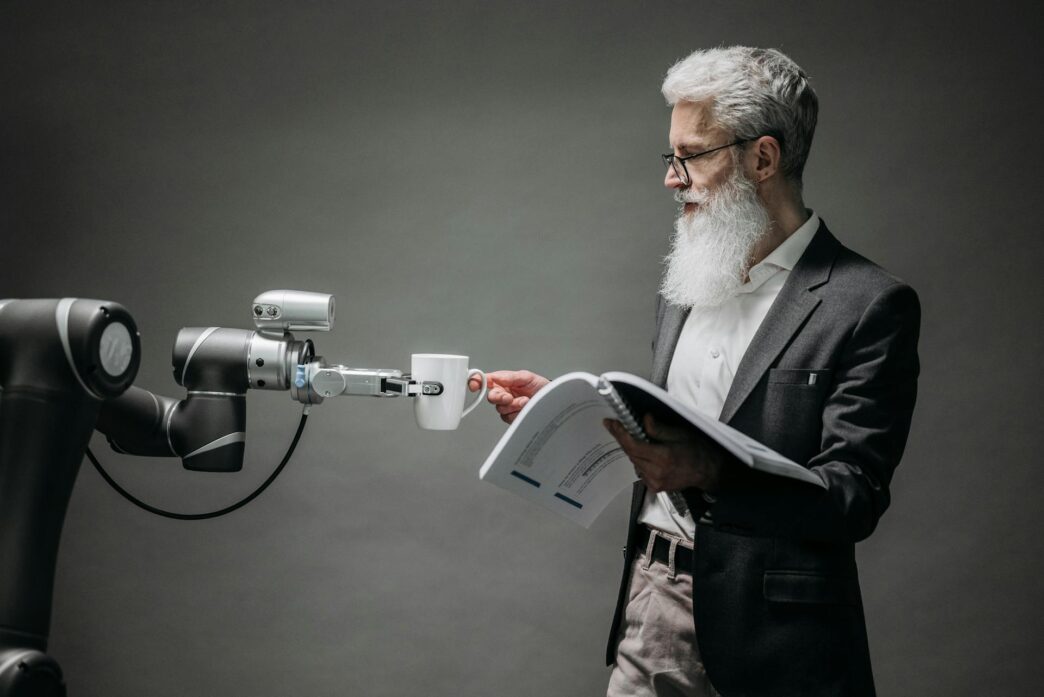AI Agents are pivotal innovations in the tech industry. They are defined by their capacity to interpret environments, decide on courses of action, and implement these actions autonomously. As their adoption expands across sectors, there is an ongoing discussion about their role. Experts ask if these will be the next significant technological leap or if they are just a passing trend.
The Third Wave in the Evolution of Artificial Intelligence
Artificial intelligence has evolved remarkably within a short time span. Already, we can identify three generations. At first, we saw the rise of predictive AI. These mostly used data analysis to forecast future outcomes. Next, we had the second wave, which brought about generative AI powered by deep learning models. These were capable of producing content like text and images which resemble human creativity. We are now entering a third wave marked by the emergence of Agentic AI. These intelligent agents have the capability to manage and execute complex tasks autonomously.
AI agents are known as intelligent assistants designed to function as digital colleagues. These entities engage in roles such as coworkers, administrative assistants or customer service representatives. They use natural language processing to interact with humans.
Imagine a future where companies can integrate autonomous AI agents to perform specialized tasks. These agents would handle customer service, perform data analysis, refine sales tactics, and perform operational tasks in real time. Industry experts acknowledge specialized AI agents have unique benefits and return on investment that more general systems struggle to achieve.
AI Agents: A Unique Productivity Opportunity
This is a unique opportunity to overhaul processes and revolutionize business processes. It holds the promise of massive productivity gains. However, organizations must follow strict ethical and operational frameworks to achieve and ensure responsible development and deployment of agents. This includes rigorous testing to reduce errors and a well-established governance framework.
In line with the broader applications of AI, successful design, deployment, and management of AI agents require specialized skills. Fortunately, many organizations already have the requisite domain expertise. To unlock the potential of AI agents, it is important to upskill and reskill employees to enable them to manage and leverage these systems. Building in-house expertise will be crucial to capture long-term value and maximize the benefits of AI agents.
Distinction Between Generative and Agentic AI
There are distinct differences between generative AI and agentic AI. Agentic AI is tailored for autonomous decision-making, frequently operating independently of human input, which sets it apart from the typical application of generative AI. He pointed out several distinguishing characteristics and functionalities of agentic AI versus generative AI, beginning with their context and application focus.
While generative AI can be applied broadly across numerous sectors and functions, agentic AI is honed for particular settings and situational contexts. Consequently, the most effective applications for agentic AI at present involve tasks that are well-defined and predictable, where the risk or impact of errors is minimal.
Moreover, integrating agentic AI into current systems presents challenges different from those encountered with generative AI. Capitalizing on agentic AI’s decision-making prowess often necessitates altering existing systems and interfacing with current APIs to incorporate proven business logic, thereby enhancing the precision of decisions.
AI Agents: A Strategic Approach
Begin with modest initiatives and scale up strategically when transitioning from generative AI to agentic AI. Pinpoint a few key areas with significant potential impact, like customer service, and initiate pilot projects to test and hone agent functionalities. Simultaneously, explore the evolving platforms and software elements that facilitate agentic AI.
It’s crucial to consider the technological aspects, user experience, and workflows connected to it. Instead of focusing purely on technological capabilities, adopt a comprehensive view of how these agents might transform workflows. The goal should be to eliminate repetitive tasks, boost efficiency, and foster enhanced collaboration between humans and machines.
The real challenge lies in deploying agentic AI within corporate environments or in sectors driven by innovation, such as research and development in materials science or pharmaceuticals, where there’s greater uncertainty and risk. In these sophisticated settings, agents need an intricate level of understanding to make dependable and credible decisions.
Wrapping Up
AI agents represent a compelling technological development, offering transformative potential across industries. While they promise significant benefits, addressing their challenges is essential for sustainable adoption. Whether they emerge as the next big thing or remain a passing trend will depend on technological advancements, ethical practices, and societal acceptance. As the technology evolves, AI agents are poised to reshape the future, balancing innovation with responsibility.


















